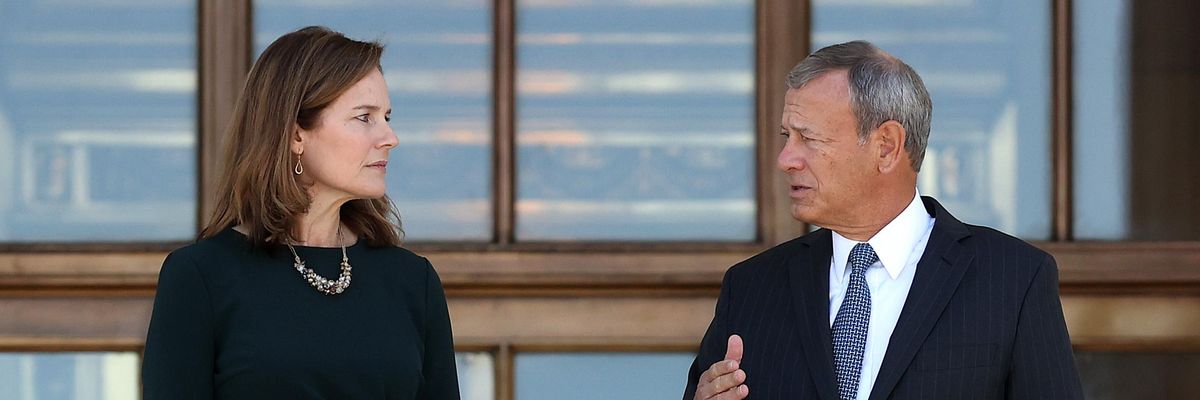Just two days after U.S. President Joe Biden announced the formal launch of the application for his student debt relief plan, a right-wing group focused on tax policy in Wisconsin asked the Supreme Court on Wednesday to temporarily block the program.
Unveiled in August, Biden's plan is set to forgive up to $20,000 for federal borrowers who meet specific income requirements. While progressives have long pushed for even bolder debt cancellation, right-wing politicians and groups have taken aim at the administration's more modest policy.
There are multiple ongoing legal challenges against the program, but the Wisconsin-based Brown County Taxpayers Association case is the first to reach the Supreme Court.
The group is asking the high court to block the plan as litigation against it moves forward, claiming the administration exceeded its authority and violated the Administrative Procedure Act, and absent intervention, the organization "will be irreparably harmed" because the policy "will deplete the federal treasury by a staggering amount."
The filing first heads to Justice Amy Coney Barrett--one of the six right-wing justices--but she could refer the matter to the full court, which also includes three left-leaning justices.
The timeline for the court to weigh in is tight, with the application process underway. Millions of people submitted their online forms during beta testing over the weekend. The portal is open until the end of this year, but the White House is encouraging everyone eligible to apply by mid-November.
Over 40 million borrowers are eligible for some student debt relief and nearly 20 million of them could have their entire remaining balance wiped out by the program, according to the White House. Loan payments--which have been paused due to the Covid-19 pandemic--are set to resume in January.
Noting that a district court rejected the right-wing group's request for lack of standing in just five pages and an appeals court did so with only a sentence, CNN analyst and University of Texas at Austin law professor Steve Vladeck projected that this case "is not going anywhere."
However, as Common Dreams has reported, public trust in the high court has hit an all-time low in the wake of several significant rulings from its right-wing majority, and legal experts have warned that this new term could be even more consequential than the last one.
David Dayen, executive editor of The American Prospect, pointed out that if the high court grants the Wisconsin group's request, it could establish a major new precedent.
"Let us see if SCOTUS will break the court system by giving any taxpayer standing to sue over anything the government is funding that they don't like," he tweeted. "I know lots of anti-war activists that will have calls in to lawyers if they do."




